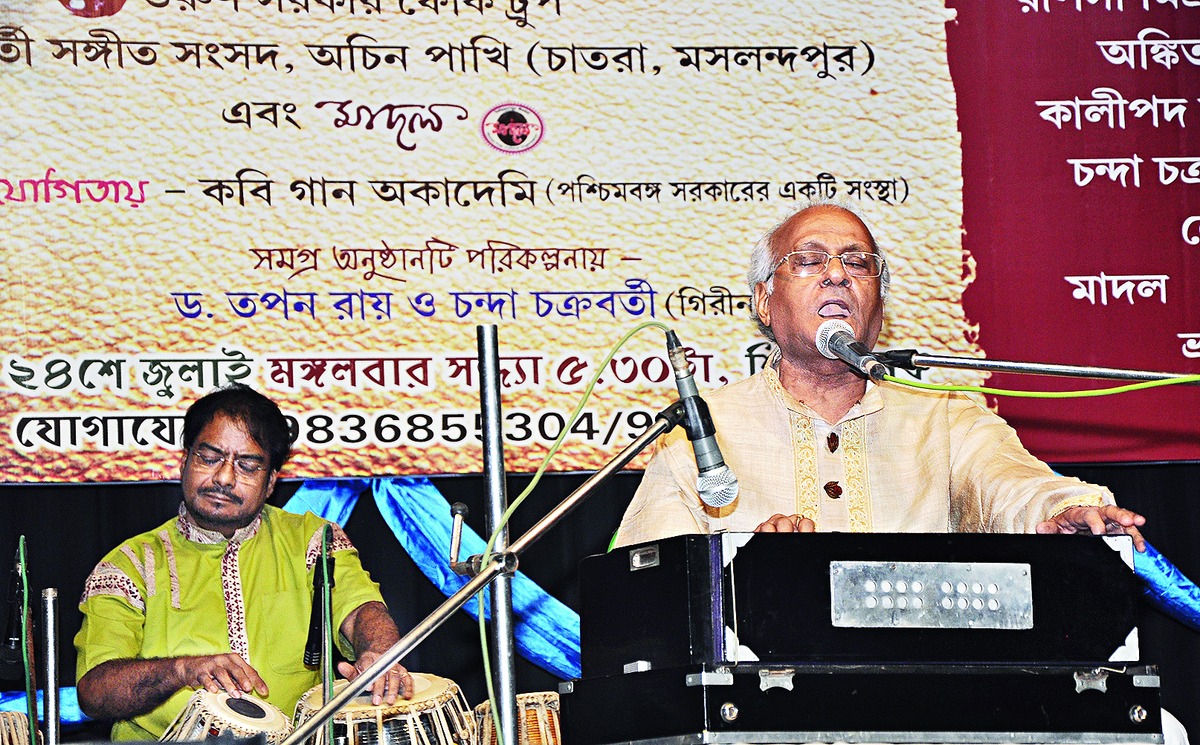
The late folk singer and musician, Girin Chakraborty (his song, " Kishoreganje mashir bari", continues to be quite popular) was paid a poignant tribute by his family members, students, well-wishers and followers at a musical evening at Sisir Mancha. The focus of the evening was on Chakraborty's immense contribution to folk music and his friendship with Kazi Nazrul Islam. It was the maestro's 100th birth anniversary and he was paid fitting vocal tributes.
But, before the choral group, Lokayet, staged its presentation, the organizers had forgotten to switch off the microphones and the waiting audience got a taste of the rehearsals and some mundane conversation going on behind the curtains. This is nothing but sheer carelessness. However, once the evening started, the group sang Chakraborty's first recorded Nazrulgeeti, " Shikol pora chol" with verve and precision. They followed it up with another popular song, "Karar eei louhakopat".
Among, the various tributes that were paid to Chakraborty, the veteran performer, Nitish Dutta Roy (picture), talked at length about his guru, Girin Chakraborty, and then went on to sing one of his compositions " Mone pore aajo". Dutta Roy's rendition reflected warmth. Shyamal Kanjilal provided able accompaniment on the tabla.
Then the famous artist, Purna Das Baul, brought the house down with a rare appearance. His wife, Manju (also an accomplished singer), was as student of the late maestro. On request, Purna Das sang " Tora aaye ke jaabi re" in his trademark robust style and with elan. He also recalled snatches of conversations with Chakraborty.
Other notable tributes came from Sushmita Goswami, who sang the popular Nazrulgeeti, " Kabar jiya raate", and Gita Choudhury, whose robust, "Aami sagore bhasilaam" invited praises from the audiences.
In the course of the evening, several speakers like Tapan Ray, Barun Chakraborty and Amar Pal (his talk was recorded and played at the venue) and others spoke of Girin Chakraborty's contribution to folk music and his friendship with legends and stalwarts like Kazi Nazrul Islam and Sachin Dev Burman. Many of them also shared personal anecdotes. An appeal was made to create a musical archive of this folk sensation.











